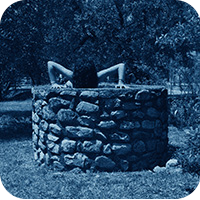The biophony of Trout Lake
I spent the long Memorial Day weekend with high school pals, fathers, and siblings on a fishing trip in northwestern Ontario. (You may recall the write-up from a few years back featuring Bruce the ax-wielding moose-hunter.)
We’ve been making the trip for decades, but it was only this time that I realized the full impact of truly being off the grid: no roads, no landlines, no cell service, obviously no computers, no Internet. It was a fantastic shock to the system.
The disconnection is not abrupt. You fly into Winnipeg and all is well. Cell still works; iPhone happily sucking in data. You drive east out of Manitoba into Ontario, all good, happy banter in the car, people still covertly checking devices for refresh. Once past Vermillion Bay things start to get dodgy, connection in and out, sucking a shrinking air pocket inside a sinking vehicle. Then Red Lake. Nothing but landlines. Connectivity here is only for the old school essentials such as calling home to loved ones. You wonder, maybe this is the only connection that matters.
The next day you take the float plane to Trout Lake. The last moment of connectivity departs in a cataclysm of noise as the 1940’s era prop aircraft motors up to speed. You put on old school noise-cancelling headsets (i.e., huge rubber and foam cans) and the world goes silent. When you’re finally on the dock in Trout Lake you may as well still have the headset on because everything is utterly still, cloyingly quiet.
You better like the people you with because you can’t tweet your discontent. Of course, liking the people you’re with — and the staff at the camp — is the reason for the trip. But the importance of human communication rather hits you in the face.
And not just verbal communication. Most of the guides on the lake are native Canadians, Indians in the old parlance of the US. Famously taciturn, these guides know the lake like you knew your childhood neighborhood — but they’re not conversationalists. Most respond in grunts or curt phrases. Some open up occasionally (if, sadly, the chance of alcohol is involved) but even then it is awkward and quick to dissolve. As such, the communication throughput becomes even narrower. But the signal-to-noise ratio is off the charts.* From wideband always-on to hand gestures and body language in 24 hours.
So you’re left to listen. And that’s when it hits you. This place is loud. Lapping waves, birdcalls that can only be described as symphonic, overlapping frog croaks, the last floes of ice in the crunching throes of dissolution, indeterminate animal noises that frighten, even the low white noise of the biomass on the shore recycling itself.**
It’s an internet. Which is to say, it is a massively-scaled, multiply-threaded system of signals with intention. The birds aren’t chirping because its pretty; they’re communicating. The ice isn’t making noise with purpose but it serves a purpose. Moose and other shallows-dwelling animals hear it and adjust behavior.
But there is human-made noise, of course, all gas-powered. Float planes every few days, outboard motors every few minutes, and the camp generator way back in the woods always. It’s an ecological disruption, if only aural. Not nearly the damage we’re causing to the environment in other ways, but damage just the same.
Bernie Krause calls nature’s soundscape biophony and contrasts it with human-made noise, anthrophony. He’s a field-recording scientist who catalogs the ways in which man’s din interferes with the communication networks built in to nature, inanimate and living. It’s no different than spectrum interference between your router and cordless phone. Two signals with the same acoustic imprint are going to degrade each other.
The real reason the soundscape on the lake is an internet is because it works around outages; it isn’t point-to-point. When a motorboat storms through a bay certain communications are disrupted, to be sure. But the toad croak network continues with shorter hops (so to speak) between rebroadcast. Eagles depart for quieter aeries from which to communicate. And of course most signals are simply queued for later transmission. It’s remarkably effective … to a point. When the noise is constant (as in the generator) the soundscape alters the landscape firmly, pushing the communication past a certain radius where it all works again.
It’s only in a place as serene as Trout Lake that you realize all this, of course. Laws requiring sound abatement mostly exist only in dense urban areas whose ambient noise level is already ridiculously high. Exurbia and rural areas — the places with the most at stake — hardly give human-made noise a second thought.
(It’s interesting to contrast this experience with the other annual fishing trip I take with my family on the Gulf in Texas. There, in a boat even miles out fishing the intercoastal waters, you’re always in range of a cell tower. Guides follow the fish by talking to each other on phones constantly. You wonder what the fishing would be like if the guides had to jack into nature’s network rather than Verizon’s.)
Back on Trout Lake, you return to camp after a day fishing for a congenial bullshitting happy hour, just talking at a table face-to-face. Dinner preparation is announced with one bell ringing, serving by two. The night unwinds by a fire where you watch the aurora screensaver in the sky and, mostly, just listen to nature’s nocturnal packet switching hit overdrive.
More photos and video here.
* High signal-to-noise is the very reason for no roads in. If you open up that bandwidth the pressure on the lake ecology increases exponentially, reducing the high value signals: huge, abundant fish.
** Some of the dads are hard of hearing and use in-ear aids. The near-absence of human noise and direct soundlines on the lake surface allow them to hear sounds far better (such as from boat to boat hundreds of yards apart) than they can even do in a small room around a table.














Insightful as usual John.
I wondered if you also found the interaction with your friends different because nobody from outside that social circle had access to it, or was butting in?
As much as I value being able to share things, I sometimes feel like my every day team/group/friend activities aren’t as special as they could be because they’re being broadcast semi-live on the Internet. When I go visit my family or friends from home, I can be confident that nobody is going to flickr, twitter or youtube anything, I can just imagine the disdain on my Dad’s face if he even had to say the word, “twitter”, let alone understand it.
Maybe it’d be nice to have some social software that wasn’t all about pushing everything to everyone, but that wasn’t a team room.
Darren, I couldn’t agree more. Perfect example, I hate posting photos on facebook, cos no matter how much you control your privacy settings, it’s far from ideal.
Unfortunately not everyone is as concerned about that and every time someone brings a camera out, I find myself dreading those pictures ending up on facebook especially if I know that their privacy settings are a lot more relaxed than mine.